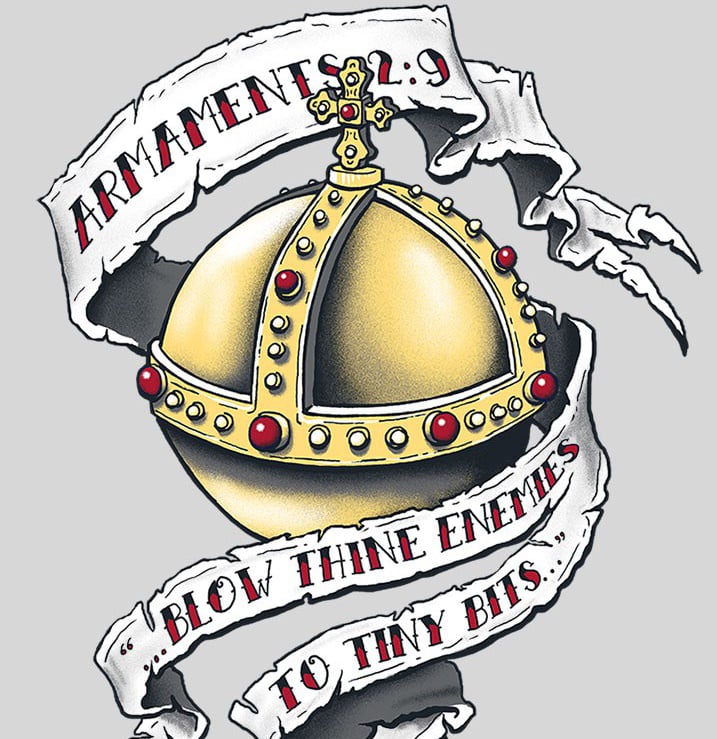What are some (non-English) idioms, and what do they mean (both literally and in context)? Odd ones, your favorite ones - any and all are welcome. :)
For example, in English I might call someone a “good egg,” meaning they’re a nice person. Or, if it’s raining heavily, I might say “it’s raining cats and dogs.”
In Swedish there is
“Now the boiled pork is fried”, meaning sometging has gone too far
" be on the cinnamon", to be drunk
“Put the legs on your back”, to run
“You are out biking”, you are missing the point
“Pay[back] for old cheese”, to get revenge
" bear-favour", is a favour that gives bad results
“Now you’ll see other buns”, things will get rough
" there are no children being made here", nothing is happening/its boring/lets go
“Satan and his aunt”, all kinds of people/everyone
“Good day, axe-handle”, something like saying “yeah, you dumbfuck” after getting a nonsense repley from someone
“In only the brass”, to be naked
“Show where the cupboard will stand”, to firmly make a decision
“You cupboard”, miss the point, being stupid
" shit in the blue cupboard", to make a mistake
Edit: forgot a good one:
“Get your thumb out of your ass”, to stop doing nothing and start doing something
I thought “be on the cinnamon” was going to be my favorite, but the list just kept getting better. I think you ended on the best.
björntjänst bear-favor: From a French fable (L’Ours et l’Amateur des jardins by Jean de La Fontaine) in which a tame bear wants to do his master a favor by hitting the fly who sat down on the master’s forehead, but hits the fly so hard that the master too is killed.
Interesting
Some Norwegian politicians have completely ruined this expression, and now use it to mean “a really big favor”.
It’s almost as annoying as when Americans say they “could care less” when they mean the opposite.
Bärendienst in German.
" there are no children being made here", nothing is happening/its boring/lets go
My sides went into orbit. How else would someone entertain themself, when this expression was coined? TV is a recent invention, after all…
Ikea is starting to make more sense with all this cupboard talk
Interestingly, English has the same exact expression (“get your thumb out of your ass”).
If you are ever visiting Öland, and stop by Solliden, our King’s summer retreat, you can go into a café and they have the toilets in a room you enter through a blue cupboard.
So yes, I have shat in the blue cupboard at the Kings summer retreat
Forgot: “Fastnat med skägget i brevlådan” Literal meaning being: “Stuck with your beard in the mailbox” which is basically saying you’ve fucked up and are getting caught in the act
There are no children being made here made me laugh so hard when i tried to imagine to translate it and use it randomly
Fun question! There’s an abundance in Vietnamese. Usually used by parents and/or old folk (I can hear it now…)
Mèo khen mèo dài đuôi — Literal translation “cat praises cat’s long tail.” A way of expressing narcissism.
Uống nước nhớ nguồn — Literal translation is “drink water, remember roots.” So you’d pause, reflect, and remember where you came from.
Gieo gió gặt bão— Literal translation is “sow winds, weather storms.” A way of saying “you reap what you sow.”
Có công mài sắt có ngày nên kim — Literal translation “Perseverance grinds iron some day into needles.” Used like “practice makes perfect.”
Trời có mắt — Literal translation “Heaven has eyes.” Usually used when someone’s wronged, but don’t worry - heaven is watching.
Gần mực thì đen, gần đèn thì sáng — Literal translation “near the ink it blackens, near the lamp it lights.” You’re influenced by those you’re around.
Nuôi ong tay áo — Literal translation “raise bees in shirtsleeve.” As in “to nurture a snake in one’s bosom,” kindness will be met by betrayal.
I really like these. They all seem very poetic, at least in English. I think my favorite is “near the ink it blackens, near the lamp it lights.”
“o que é um peido pra quem já está cagado?”
What’s a fart to someone who already shit himself?
If you’re already 30 minutes late, don’t speed recklessly to save 3 minutes.
Haha! The equivalent in Ireland (not sure if it’s used in other English speaking countries) is “may as well be hung for a sheep as a lamb”
Makes me think of " Why cry over spilled milk?" Which never made any sense to me lol
tnh I think the spilled milk saying is more about things that you can’t control / already happened.
and the Brazilian saying is more like “it’s ok to let a little more milk get spilled”, however I can’t think of a nice way of saying that.
edit: thinking more about that, maybe the milk saying can be used for this, but not necessarily
Yeah it didnt feel directly relatable but maybe adjacent to it
That is awesome
Icelandic is full of fun idioms:
“He’s totally outside driving” = he’s very incorrect about something, possibly crazy
“It’s hard to grab his horns” = He’s very headstrong and stubborn
“A wave rarely comes alone” = If something bad happens, usually a lot of bad things happen at once
“He hasn’t peed into the salty sea” = he’s young an inexperienced
“He has unclean flour in the corner of the bag” = he’s untrustworthy
“I totally come from the mountains” = I’m out of the loop, unaware of recent developments“He has unclean flour in the corner of the bag” = he’s untrustworthy
Danish has this also, just phrased like “He’s not got clean flour in the bag”
Maybe it’s from common heritage
Yeah probably, a surprising amount of Icelandic idioms have Danish/Norwegian counterparts
Swedish has it as well, so I think we can safely scratch it down to common heritage.
They do not fuck around when it comes to unclean flour
A wave rarely comes alone
An equivalent idiom in English for this one might be “When it rains, it pours”
‘Les merdes volent en escadrille’ = ‘shits fly in a squadron’ (famous expression coined by former President Jacques Chirac)
There’s also the very nerdy Shakespeare version of the same sentiment: “when troubles come, they come not single spies, but in battalions.”
“I totally come from the mountains” = I’m out of the loop, unaware of recent developments
Similar to ‘Have you been living under a rock?’.
This is English, but Canada specific as far as I know.
“Fucking the dog” - means to slack off, particularly at work.
“I fucked the dog all day at work today” basically means I got nothing done.
It is distinct from “screw the pooch” which means to fuck something up badly.
This is amazing!
In Norwegian we say “helt sylta” (“completely pickled”) when we have a very stuffy nose. I tried using that idiom when calling out of work in the US once, and was informed that I had just told them I was too drunk to go to work!
I love the Norwegian “helt Texas” or “completely Texas”, which means something’s totally crazy. Probably a reference to Westerns.
I feel like it’s accurate to say Texas is completely Texas.
A classic! I don’t know how I forgot to mention that one, I even coincidentally explained it to someone earlier today!
deleted by creator
Cubans have the antonym to that:
Aserlo como los blancos “Do it like white people”
Do it properly 😜
Almost forgot “jalla” or “jallamekk”, originally adopted by Norwegian military from a middle eastern word for “fast”, meaning a quick and dirty, but not particularly high quality, solution.
Yeah it’s common in English that saying “I’m Xed” means drunk.
Fucked, twated, trollied, muntered, cunted, steamed etc.
According to John Oliver you can use any noun, like for example “gazeboed”.
100% people in the UK would know what you meant straight away.
That’s generally true, but there are some exceptions. For instance. “I’m pissed” can either mean “I’m drunk” or “I’m angry” depending on where you are and the context.
UK would always be drunk, in my experience.
Yeah, that’s one of the geographical differences I was alluding to. In Canada it can mean either depending on context.
That’s interesting to know. I guess there has been some cultural spillover in the UK so some may use it the American style, I just haven’t heard it.
Yeah, some nouns are already taken, that’s fair. Like “shafted”.
Turkish: “Niye böyle bakıyorsun? Karadeniz’deki gemilerin mi battı?”
-> “Why are you looking like that (Why such a face)? Did your ships sink in the black sea?”
It was already my favourite before 2022, but hell has it become ever more so then. Slava Ukraini!
Isn’t there also a saying like “fucked by a polar bear in the desert”, meaning being unlucky?
I believe you mean this one: https://eksisozluk.com/bahtsiz-bedeviyi-colde-kutup-ayisi-sikermis--165324
“Bahtsız bedeviyi, çölde kutup ayısı sikermiş.” == The misfortunate bedouin gets fucked by a polar bear in the desert.
However, I am not sure if this means fucked in a literal sense or rather “fucked up” :) probably the latter.
Mandarin Chinese:
I thought of a couple involving animals.
沉鱼落雁 (chén yú luò yàn) - literally “sinking fish and grounding geese” - describes a beautiful woman.
虎头蛇尾 (hǔ tóu shé wěi) - literally “having the head of a tiger and the tail of a snake” - meaning: 1. having a strong start and a weak finish. 2. describing someone who is treacherous and doesn’t do what they say they will.
Lots of idioms in Chinese are “chengyu” consisting of four characters.
Chinese has so many good ones.
Please forgive the lack of tones, it’s been a long long time.
Ren shan, Ren hai: a mountain and sea of people - a remarkable amount of people by Chinese standards.
Ma Ma, Hu Hu: horse horse, tiger tiger - a mixed bag, or something that’s ok.
yeah, ren shan ren hai is a pretty good one, and it’s also probably one of the more frequently used ones.
沉鱼落雁 (chén yú luò yàn) - literally “sinking fish and grounding geese” - describes a beautiful woman.
I know a woman who could “make fish stop swimming” as well. We’d also say she could “stop traffic” in that people could forget they were supposed to be driving.
She’s so gorgeous your brain hiccups.
In Hebrew there is “para, para” which translates to “cow, cow” and it means “one at a time”
There is also “matzoz meh-ha-etzba” which translates to “sucked from the finger” and it means bullshit basically.
“Nishbar li ha-zain” which is “my penis broke” and it means “I’m done with this” in an angry and out of petience way.
My favorite in Macedonian: My dick hurts. Translation: I don’t give a fuck. Also, the opposite is true, like if someone says “My dick doesn’t hurt at all about so and so”, it also means the same thing: I don’t give a fuck. Go figure 🤷 😂.
This is hilarious 😂 Is it something those of us without dicks would also say? (In English, I might still tell someone to “suck my dick,” despite not having one.)
Yeah, girls say it around here too sometimes 😂, but some also tend to replace the dick oart with pussy, so girls would say “my pussy hurts” or “my pussy doesn’t hurt all” 😂.
We do “my dick sweats”, for the same thing, which I now realize sounds super gross.
Yeah, it is 😂.
We also have a phrase “dick dangles in cold water” which basically means nothing’s happening or something is irrelevant 😂.
In English, over time, “I could care less” has come to have the exact same meaning as “I couldn’t care less.”
Some people get wrapped around an axle (i.e. irrationally angry) about it, but i just mentally fill in some context myself: “I could care less… i suppose… if i really tried… but that’s not going to happen.”
There’s no governing body for English. If you communicate the meaning and social cues that you intended, then it’s “right.” Of course, communicating social cues is sometimes where you can get in trouble using newer linguistic constructions.
Yeah, I think the negation part in Macedonian was added later on, in newer generations because it sounded more “cool” I guess. But the phrase has been around for a very long time, probably like 70, 80 years, maybe even longer.
If someone “got a pig”, it means he got lucky in German. Often in a rather desperate or unexpected position. "Der hat mal so richtig Schwein gehabt“ -> “he really got pig there” could for example be used if someone narrowly escaped an accident, if you managed to get exactly the minimum passing score in an exam, etc.
Apparently the expression comes from the middle ages, where the second place in a lucky draw was often a literal piglet. So you maybe didn’t get the main prize, but at least you got pig.
Got pig, without the „a“. I have never heard „ein Schwein haben“, unless it is meant literally.
Spanish, but only from my region:
“You are worth dick”: You are worth nothing
“You are not worth dick”: You are worth nothing
So basically to be worth dick and not be worth dick is the same.
We also have some variation like
“You are [not] worth three trip strips of cock”: same meaning.
A bonus, not related to genitalia:
“Go get your hair brushed by a donkey”: Stop pestering / go fuck yourself.
As an English speaker I would naturally interpret “You are worth dick” and “you are not worth dick” in the same way.
Central America? Those kind of “click” for me if I retranslate them to Spanish with verga.
The “basic” insult also works in Portuguese with “caralho”:
- vale um caralho (worth a dick) = worth nothing
- não vale um caralho (not worth a dick) = worth nothing
“Go get your hair brushed by a donkey”: Stop pestering / go fuck yourself.
This sound hilarious. How is it phrased in the original? “Anda que un burro vos cepille el pelo” or something like that?
South america!
I didn’t know that also works in Portugese!
The original is: “Vaya a que lo peine un burro”. Bit of a hard translation and also is always formal (usted).
I think it’s hilarious how often different languages use genitalia in their idioms. These feel like they’d work really well, even in English.
Oooh as a non native speaker, these are fun! Are the first two something like no vales polla or no vales ni polla?
Quite close! But we use another word, polla is mainly use in spain.
“[No] vales [ni] [tres tiras de] verga/mondá”
But if you use ni you necesarly need the no at the begining of the sentence.
Mondá is a slang word, very regional. Is also a bit more agressive.
Russian, my favourite one: when a crayfish whistles on a mountain. Means never gonna happen.
You reminded me one in Latin in the same spirit: kalendis graecis, or “in the Greek calends”.
Calends were the first day of the month in the Roman calendar, there was no Greek equivalent, so that meant simply “never”.
“Ich glaub mein Schwein pfeift” (I think my pig is whistling) - in German that means “I can’t believe it”.
Or you can say “after a rainfall on thursday” which means the same thing, never gonna happen.
Portuguese: “Dia de S. Nunca à tarde” meaning “day of saint Never, after noon.”
Portuguese has a plethora of expressions like that:
- trinta e um de fevereiro (the 31st of February)
- na semana com duas quintas (in the week with two Thursdays)
- nem que a vaca tussa (not even if the cow coughed)
- quando galinha tiver dente (when chickens get teeth)
- nem a pau (not even by [being beaten with a] wood[en rod or stick])
- nem fodendo (not even fucking)
- nem aqui, nem lá na China (neither here, nor in China)
When pigs fly.
ಕನ್ನಡ (Kannada): ಶಂಖದಿಂದ ಬಂದ್ರೇನೇ ತೀರ್ಥ - shankadinda bandrene teertha.
Literally: it’s holy water only if it comes from a conch.
Meaning: people are only going to take things seriously if a specific person says it.
Example scenario: you tell a friend that a cab to go somewhere costs X amount, but they don’t believe you and check with a different friend and then accept that it’s going to cost them X.
You’d then say this idiom to tease them since you gave them the same water (information) but it wasn’t holy water since you weren’t a conch (someone they trust/have faith in).
Irish: Ar muidne muiche.
Literally “on the pigs back” and means “doing great” for example in response to “how are you?”
















